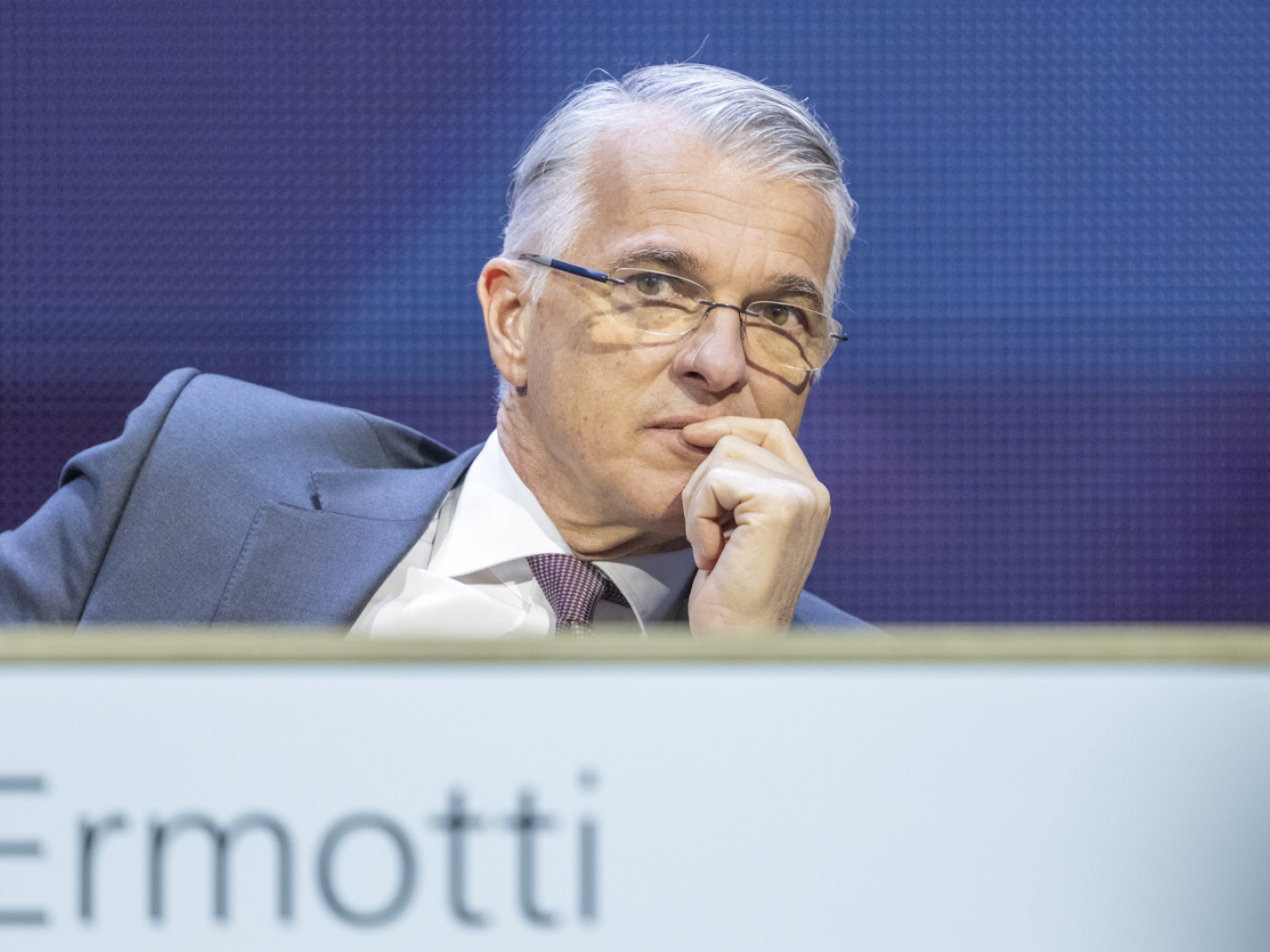UBS CEO not overly concerned about US tariffs

UBS faces the potential negative impact of trade disputes on its business without any particular anxiety.
Group CEO Sergio Ermotti said he was “not overly concerned” about the financial targets: year after year the bank has managed to succeed in very difficult market environments, the executive stressed.
The institution continues to have things under control, the 64-year-old concluded at the press conference presenting the group’s quarterly results. The integration of Credit Suisse is progressing well and the planned further cost savings will have a positive impact on the results. What might happen in the economy in the longer term and outside UBS has yet to be analysed: in the short term, however, Ermotti claimed that he is not particularly concerned about the tariff measures imposed by US President Donald Trump.
Even the share buybacks hitherto planned are not in danger, unless there is a huge deterioration in the economic outlook, continued, according to the UBS CEO. More specifically, the reason for the recent lacklustre performance of the UBS share on the stock exchange is clearly to be found in the uncertainty surrounding the political debate on stricter capital requirements for the bank, Ermotti said in response to a question on the subject. In his view, there are no other reasons.
Following the turmoil due to the announcement of US tariffs in early April, UBS shares had fallen to their lowest level of the year at CHF20.66, down 25% from the end of 2024. This was after the value had rocketed in early 2025, rising to a high of CHF32.88 on February 4, the highest level since the 2008 financial crisis. Today the share is trading at almost exactly CHF 25, down 10% since the beginning of January.
Also appearing before journalists and analysts was head of finance Todd Tuckner, who described April as ‘OK’ in terms of UBS’s business. Volatility increased after Trump’s first announcements on tariff barriers earlier in the month, but was ‘productive’. Should the uncertainty continue, however, more and more clients could remain inactive. However, it is not yet clear whether this will actually happen, the CFO concluded.
Adapted from Italian by DeepL/ac
How we work
We select the most relevant news for an international audience and use automatic translation tools such as DeepL to translate them into English. A journalist then briefly reviews the translation for clarity and accuracy before publication. Providing you with automatically translated news gives us the time to write more in-depth articles. The news stories we select have been written and carefully fact-checked by an external editorial team from news agencies such as Bloomberg or Keystone.
Did you find this explanation helpful? Please fill out the short survey below to help us understand your needs.

In compliance with the JTI standards
More: SWI swissinfo.ch certified by the Journalism Trust Initiative


















You can find an overview of ongoing debates with our journalists here . Please join us!
If you want to start a conversation about a topic raised in this article or want to report factual errors, email us at english@swissinfo.ch.